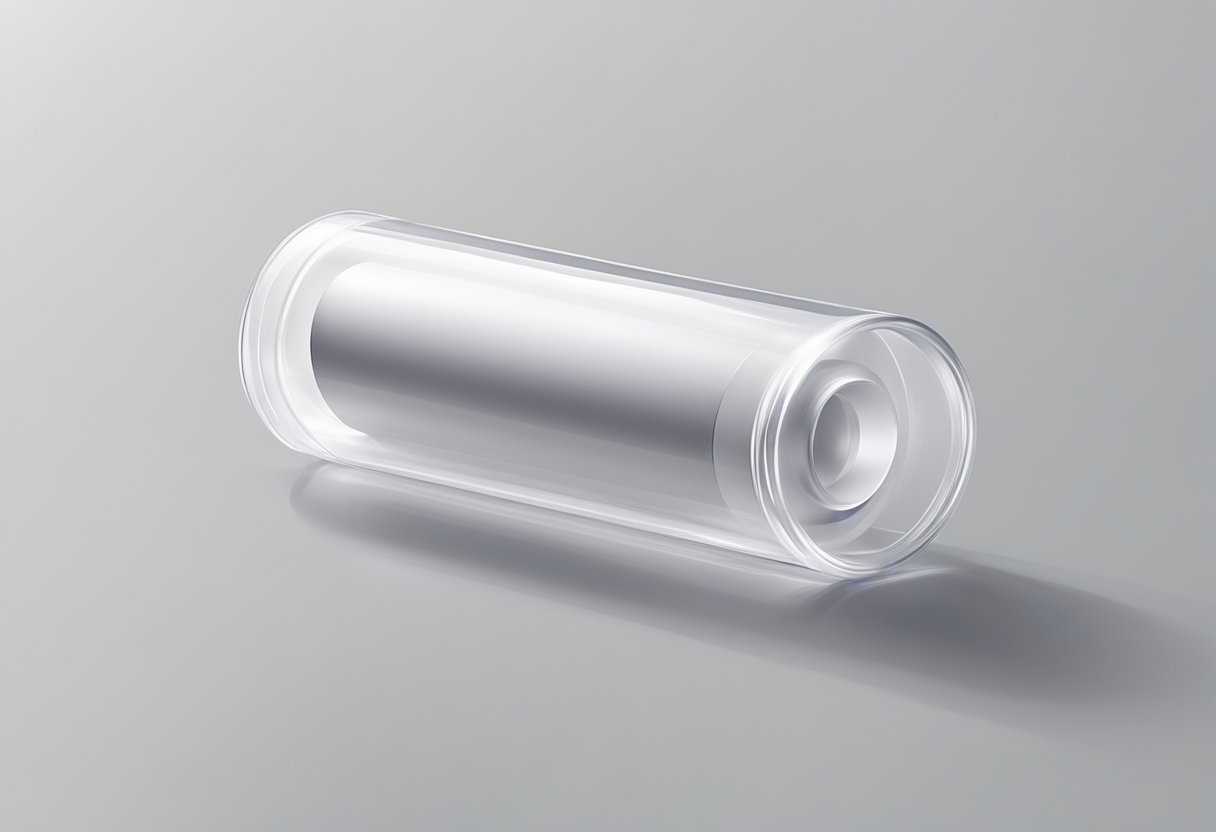Boric acid suppositories have gained popularity as a natural remedy for maintaining vaginal health. These suppositories can help restore the natural pH balance in the vagina, making them effective for addressing issues like yeast infections and odor control. Many individuals are turning to this solution due to its simplicity and effectiveness.

Understanding the components and benefits of boric acid can empower users to make informed decisions about their health. They typically consist of boric acid and may also contain other ingredients for added benefits, such as moisture retention and pH balance. Users often seek alternatives that are both effective and safe, prompting questions about their usage and any potential side effects.
With proper precautions, boric acid suppositories can be a valuable addition to one’s health routine. As awareness grows, it’s essential to disseminate accurate information to navigate the available options confidently.
Key Takeaways
- Boric acid suppositories can help restore vaginal pH balance.
- They are used to address conditions like yeast infections and odor.
- Understanding their ingredients and safety is crucial for effective use.
What Is Boric Acid Suppository?
Boric acid suppositories are a form of treatment commonly used for vaginal health. They play a role in maintaining vaginal flora and addressing various infections. Understanding their definition and mechanism of action provides insight into their use.
Definition and Overview
Boric acid is a white, crystalline compound that has antifungal and antiviral properties. When used in a suppository form, it is inserted into the vagina, where it slowly dissolves.
These suppositories are often recommended for conditions such as bacterial vaginosis and yeast infections that are resistant to other treatments. They may help restore the natural pH level of the vagina, promoting a balanced environment that supports healthy vaginal flora.
Commonly, a standard dose involves inserting one suppository nightly for several days, depending on the severity of the condition.
Mechanism of Action
Boric acid works by altering the pH level in the vagina, creating an environment that is less conducive to harmful bacteria and yeast. This action helps to rebalance the vaginal flora.
By releasing boron, it exhibits antifungal activities that can reduce the overgrowth of yeast and other pathogens. This makes it especially useful in cases where standard antifungal treatments have failed.
Moreover, boric acid’s ability to reduce inflammation can aid in alleviating discomfort associated with infections. This multi-faceted approach enhances its effectiveness as a treatment option.
Benefits and Uses
Boric acid suppositories offer various benefits for vaginal health. They effectively help restore vaginal flora, treat infections, and manage moisture levels. This section details how these suppositories can support women’s health needs.
Restoring Vaginal Flora
Boric acid plays a significant role in restoring vaginal flora, which is essential for maintaining a healthy vaginal environment. A balanced vaginal flora is crucial to prevent infections and discomfort.
When used properly, boric acid suppositories can help reduce an overgrowth of harmful bacteria. They work by creating an acidic environment that is unfavorable for pathogens, thus promoting the growth of beneficial bacteria like Lactobacillus.
Maintaining balanced vaginal flora can minimize symptoms such as itching and odor, contributing to overall comfort and well-being.
Treatment of Vaginal Yeast Infections
Boric acid is commonly recognized for its effectiveness in treating vaginal yeast infections. It serves as a supplementary treatment to conventional antifungal medications. Research suggests it is particularly beneficial for women experiencing recurrent infections.
The acidic properties of boric acid can inhibit yeast growth, providing relief from symptoms like burning and irritation. Many women turn to boric acid when standard treatments have failed, making it a valuable option in managing persistent cases.
It’s essential for users to follow dosage instructions and consult healthcare providers when using boric acid for such treatments.
Moisture Management
Moisture management is another critical benefit of boric acid suppositories. For women experiencing dryness—often due to hormonal changes like menopause—these suppositories can help maintain adequate moisture levels in the vaginal area.
Certain formulations, such as those from brands like Hylafem, even include additional hydrating ingredients to further promote comfort during use. The hydration helps prevent discomfort and irritation caused by dryness, which can be a frequent issue for many women.
Boric acid’s ability to create a balanced moisture environment enhances overall vaginal health, making it an important option for those seeking relief from dryness. Eligible purchases may also qualify for FSA coverage, providing financial ease.
Ingredients and Alternatives

Boric acid suppositories are commonly used for various vaginal health issues. Certain natural ingredients and alternatives may enhance their effectiveness or serve as substitutes for those seeking different solutions.
Boric Acid and Vitamin E
Boric acid is known for its antifungal properties, making it effective against conditions like bacterial vaginosis and yeast infections. It works by creating an unfavorable environment for harmful bacteria while promoting the growth of beneficial flora.
Vitamin E is often included to complement boric acid. This vitamin is a powerful antioxidant that helps to soothe and moisturize the vaginal tissue. It can reduce irritation and support healing. Many formulations combine these two ingredients, leveraging boric acid’s benefits while providing Vitamin E’s protective effects.
Tea Tree Oil and Cocoa Butter
Tea tree oil is another popular natural ingredient recognized for its antimicrobial and antifungal properties. It is effective in reducing odor and discomfort associated with vaginal imbalances. Many products incorporate tea tree oil to enhance the overall efficacy of vaginal health remedies.
Cocoa butter is included for its moisturizing qualities. It helps to create a barrier that locks in moisture, preventing dryness which can occur during treatment. Combining tea tree oil with cocoa butter can boost comfort and maintain vaginal health, ensuring a more pleasant experience.
Safety and Precautions

When considering the use of boric acid suppositories, it is essential to understand the potential for irritation and the necessary safety measures to protect personal information and health. Readers should be informed about how to address discomfort and the importance of security checks in today’s digital environment.
Addressing Burning and Irritation
Boric acid can cause burning or irritation when first used. Individuals might experience discomfort, including redness or a burning sensation in the vaginal area. It is crucial to monitor these symptoms closely. If irritation becomes severe, discontinuation of use is recommended.
Users should also consider possible allergic reactions, such as skin rashes or hives. Keeping the area clean and dry can help alleviate discomfort. If symptoms persist or worsen despite proper use, it’s advisable to consult a healthcare professional for further evaluation. They can recommend alternative treatments or interventions.
Security Checks and Malware Scans
In today’s digital age, ensuring the security of personal health information is paramount. Using reputable websites for purchasing boric acid suppositories helps mitigate risks. Regular security checks can identify vulnerabilities in one’s online presence. Using a reliable provider can also ensure that the product meets safety standards.
Conducting malware scans on devices used to access health-related information can protect personal data. A software solution, such as Imperva, offers robust protection against threats. These precautions help maintain privacy while accessing or purchasing health products, ensuring a safe experience in managing personal health needs.
Frequently Asked Questions
Boric acid suppositories are commonly used for various vaginal health issues. There are important considerations regarding their safety, effectiveness, and potential risks. Below are specific answers to frequently asked questions about their use.
What are the potential risks associated with boric acid suppositories?
Potential risks include mild irritation or burning upon insertion. Users should also be aware of allergic reactions, which, while rare, may occur. It is important to follow dosage recommendations to minimize risks.
Are boric acid vaginal suppositories safe to use?
Boric acid suppositories are generally considered safe for many women when used as directed. They are often recommended for conditions such as yeast infections and bacterial vaginosis. However, consulting a healthcare provider for personalized advice is recommended.
What are common uses of boric acid suppositories for women?
Common uses include treating recurrent yeast infections, bacterial vaginosis, and balancing vaginal pH levels. These suppositories help restore normal flora and create an unfavorable environment for pathogens. They are available without a prescription.
Can boric acid suppositories impact vaginal tightness?
There is limited evidence to suggest that boric acid suppositories directly affect vaginal tightness. Results may vary by individual, and perceived changes could be linked to overall vaginal health. More research is needed to provide definitive conclusions.
What do reviews suggest about the effectiveness of boric acid vaginal suppositories?
Reviews often highlight positive outcomes in symptom relief for vaginal infections. Users typically report a reduction in irritation and improved comfort. Individual experiences may differ based on underlying conditions and adherence to usage guidelines.
What reasons might healthcare providers have for not recommending boric acid suppositories?
Some healthcare providers may advise against boric acid suppositories due to concerns about proper usage and potential side effects. In cases of severe infections, they might suggest alternative treatments that provide quicker relief. Individual health factors may also play a role in their recommendations.
